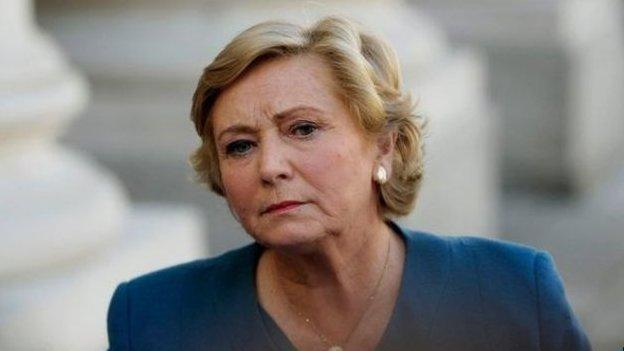Garda assessment of IRA activity in Republic of Ireland published
- Published
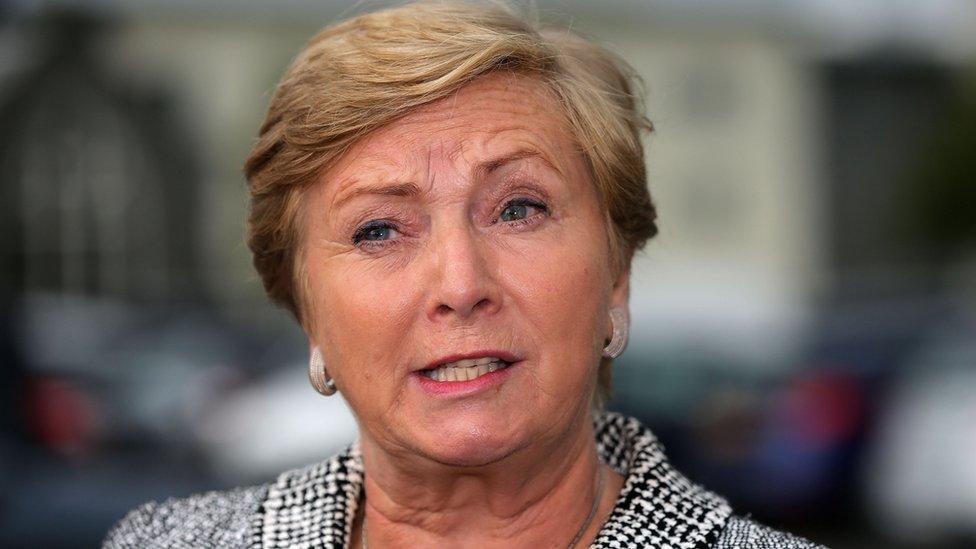
Irish justice minister Frances Fitzgerald commissioned the fresh assessment of the Provisional IRA in the Republic of Ireland
A fresh assessment of the Provisional IRA in the Republic of Ireland has been published.
It was commissioned by Irish Justice Minister Frances Fitzgerald in August following the political row over the murder of Kevin McGuigan in Belfast.
She said there was "very substantial common ground" with the assessment carried out in Northern Ireland.
She added: "Most importantly, there is a common assessment of the reality of the security threat posed by PIRA."
Northern Ireland Secretary Theresa Villiers said that while the IRA's ruling body, the 'army council', still exists, it has a "wholly political focus".
'Residual leadership'
In the Garda report, external, it said there was "no evidence of a Provisional Army Council, in the generally accepted sense, meeting or functioning in this jurisdiction".
"There is evidence that a type of 'residual leadership', committed to peaceful means, continues to exist and has become involved from time to time in dealing with 'legacy' issues," it said.
Ms Fitzgerald said part of "the Provisional IRA's brutal legacy is the involvement in organised crime of a significant number of people who have been associated with PIRA".
She said they "make full use of the reputations which they acquired as members of PIRA and do not hesitate to use their previous terror tactics".
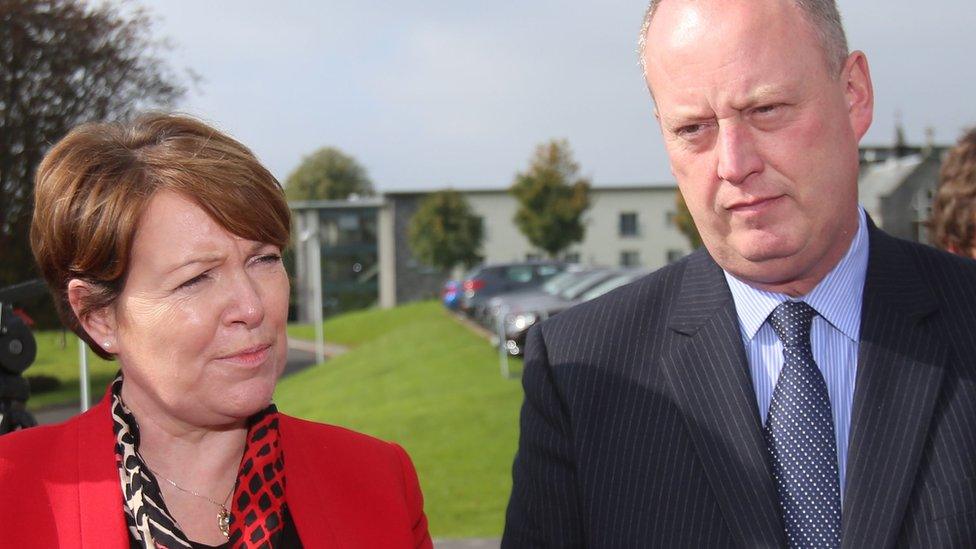
Garda Commissioner Nóirín O'Sullivan, pictured last month with PSNI Chief Constable George Hamilton at a cross-border crime seminar
The head of police in the Republic of Ireland, Garda Commissioner Nóirín O'Sullivan, said its findings "remain consistent with our previous assessments" and those of the Independent Monitoring Commission (IMC), a paramilitary activity watchdog that issued its last report in 2011 before being wound down.
"It was never the position of the IMC - nor has it been the position of (Republic of Ireland police service) An Garda Siochana - that PIRA had disbanded and, accordingly, ceased to exist," she said.
"But the issues surrounding the continuing existence of PIRA are inevitably complex."
Ms O'Sullivan said it was "noteworthy that there is no evidence that there has been any recruitment to PIRA in recent years".
She added: "I should mention that the assessment deals essentially with security issues and involvement in organised crime.
"You will be aware that there are separate criminal investigations under way in relations to sexual abuse by PIRA members."
'Logistical support'
The Garda report said that since November 2010, 70 people had been charged before the Republic of Ireland's non-jury Special Criminal Court with terrorist related offences.
No-one investigated or charged was affiliated to PIRA when they were arrested, the report said
Thirty three of those charged had past associations with the Provisional IRA at the time of arrest before defecting to dissident republican groups.
It said that during the time that the Provisional IRA was "engaged in what it called armed conflict", a substantial element of its activity in the Republic of Ireland concerned logistical support.
It said there was no evidence of any so-called military departments currently in operation in the jurisdiction.
'Legacy reputations'
However, it said there was clear evidence that a significant number of persons who have been associated with PIRA remain criminally active, particularly in organised crime, and continue to associate together".
"They make full use of their 'legacy' reputations and in some cases their former terrorist tactics," it said.
The report said there was no evidence that this was directed by the leadership of the organisation or was for anything other than personal gain.
It said the Criminal Assets Bureau, a body set up to seize cash, property and other assets of suspected criminals, had since 1996 seized 28m euros from more than 50 individuals who have had connections or associations to PIRA in the past.
- Published20 October 2015
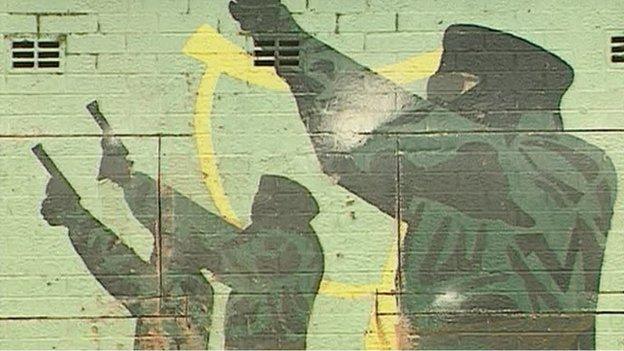
- Published20 October 2015
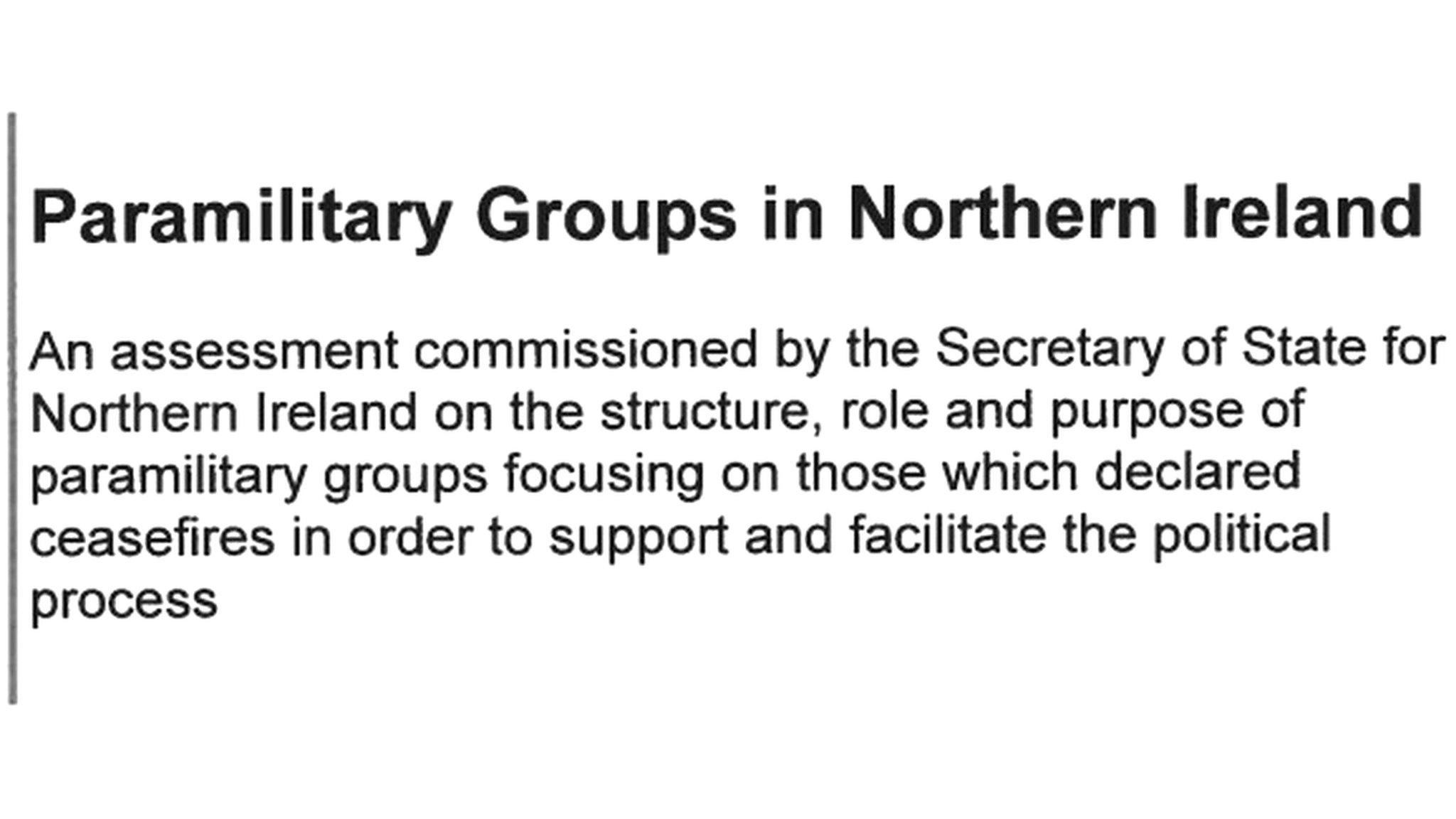
- Published13 November 2015
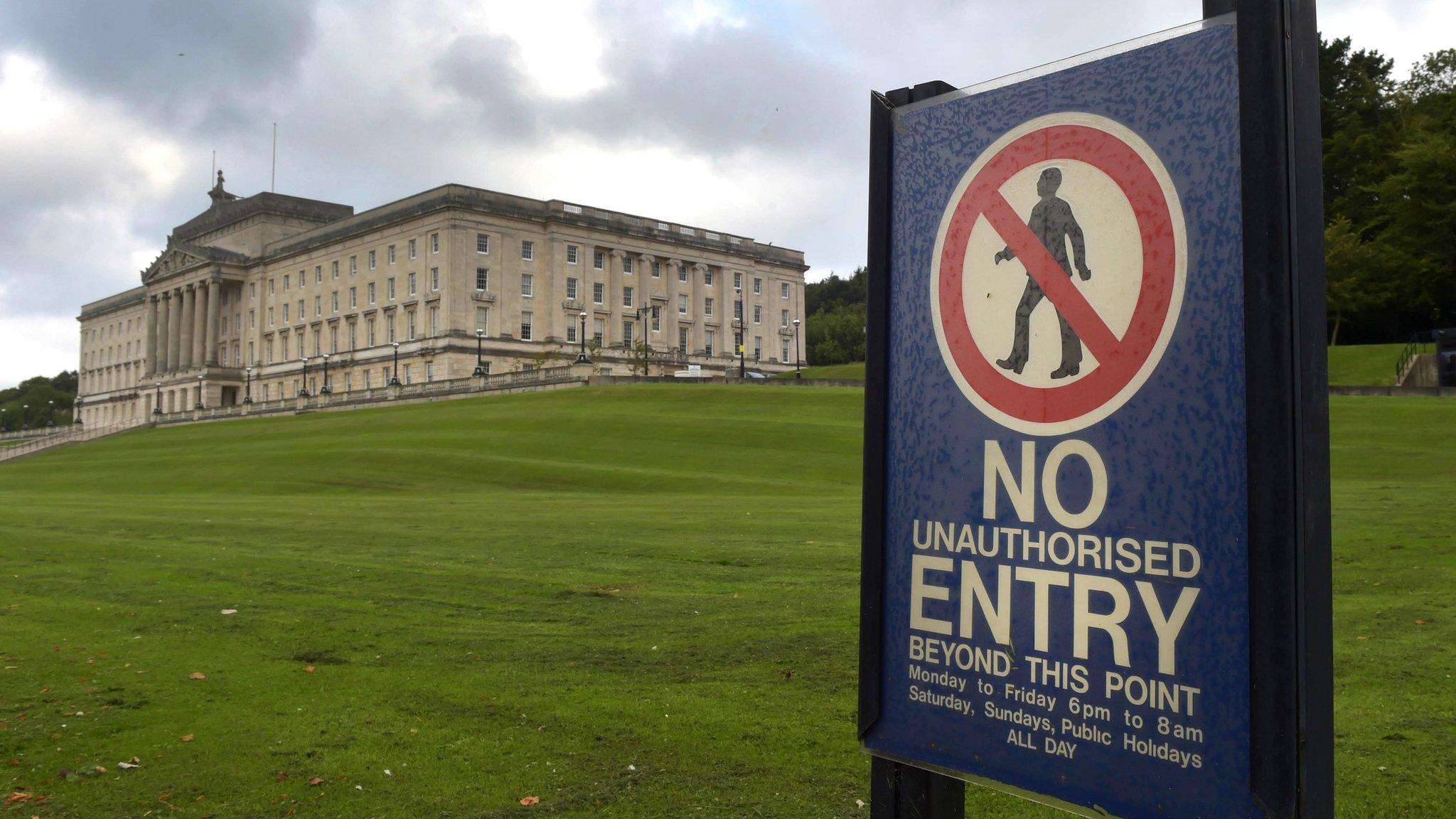
- Published25 August 2015
